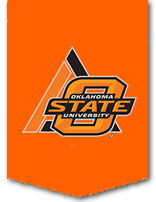From soft drink waste to future fuel: Innovating a creative use for the waste stream of America’s mainstay refreshment
(Stillwater, Okla. – Feb. 7, 2011) Students and professionals at Oklahoma State University’s Robert M. Kerr Food & Agricultural Products Center are exploring an innovative waste alternative for soda bottling facilities.
“Because Americans consume more calories from soft drinks than any other single food, the need for an alternative use for soda bottling waste is evident,” said Danielle Bellmer, FAPC food engineer and biosystems and agricultural engineering associate professor. “Soda wastes contain carbohydrates, which have potential value for the production of ethanol. This represents a significant opportunity to reclaim value and reduce waste.”
In 2009 alone, carbonated soft drinks accounted for nearly $73 billion, according to the National Soft Drink Association.
“Soft drinks have become intrinsically tied to the American way of life,” according to NSDA. “Approximately 500 bottlers operate across the United States. Modern bottling plants produce more than 2,000 soft drinks per minute on each line of operation.”
An industry and production volume of such magnitude calls for an alternative for waste stream products.
“Soda bottling plants generate a large amount of liquid waste,” Bellmer said. “Liquid wastes are a result of problems on the production line, improper packaging issues or outdated products. These bottling plants are paying to have their waste taken away.”
Developing the plan
In pursuit of innovation, the FAPC began experimentation after Lamco Recycling of Tulsa, Okla., expressed a need for a soda waste alternative.
Lamco Recycling is responsible for the disposal of soft drink waste from the nearby Pepsi Beverage Company bottling facility. This company disposes of wastes, in limited quantities, through the process of adjusting the pH of the soda waste to meet regulations of the neighboring water treatment plant.
“This project represents a great opportunity to turn a waste stream into a useful product,” Bellmer said. “This particular waste stream has a lot of easily accessible sugar, so it only makes sense to turn sugar into something useful like ethanol.”
Executing the project
In addition to Bellmer, a team of OSU biosystems and agricultural engineering students are working to convert soda waste to ethanol.
“The objective of this project is to determine the ease of fermentation of soda waste into ethanol with the specific goal of determining sugar conversion efficiency for popular sodas,” said Flint Holbrook, biosystems and agricultural engineering sophomore. “Additionally, we want to know whether pH adjustments and added nutrients are necessary.”
The project began by comparing four popular brand-name soft drinks – Pepsi, Coke, Sprite and Mountain Dew.
“A series of tests were conducted to isolate the effects of the pH adjustments and nutrients,” Holbrook said. “Before fermentation, each soda was allowed to go flat to simulate its delivery as a waste product.
Superstart, a standard distiller’s yeast, was inoculated at a level of 0.26 grams per liter to each soda variety. Distiller’s nutrients such as ammonium phosphate were used at varying levels based on the experimental design with calcium carbonate serving as the main pH adjustment, Bellmer said.
Each fermentation batch was allowed to ferment for seven days to ensure a complete reaction. At the end of the fermentation period, the products were tested for ethanol content.
Identifying initial results
The early stages of this project determined soda wastes can be converted to ethanol.
“In most cases, fermentation of the sugars to ethanol was very efficient and relatively easy, except in the case where an inhibitor prevented or skewed the fermentation process,” Bellmer said.
Because of the chemical makeup of Mountain Dew, this soda behaves differently than Pepsi, Coke and Sprite, and requires pH adjustment before fermentation.
“We have found that a handful of soft drinks have a preservative called sodium benzoate, which inhibits fermentation,” said, Jonathan Lim, biosystems and agricultural engineering sophomore. “Inhibitors in the fermentation process can be a problem. However, it appears that simply adjusting the pH level will counteract the inhibitors.”
With daily limits on the amount of wastes sent to water treatment plants, this alternative for waste could significantly reduce costs at bottling plants.
“Our results show that we can reduce or eliminate costs associated with waste removal,” Bellmer said. “The research at the FAPC can help bottling plants in Oklahoma develop an alternative to their waste disposal. The goal would be to take this information to bottling plants to setup a conversion alternative at their facility and to generate some added value.”
Venturing into the future
Because of the diversity of soda manufactures, the FAPC research team will continue to conduct similar experimental trials on other soda varieties.
“Our next step is to test as many different brands of sodas as we can find,” Bellmer said. “It will be interesting to evaluate the different kinds of sodas and how easily the sugars can be converted to ethanol. This study is another example of turning a product cost liability into a potential asset.”
- ### -
Oklahoma State University, U.S. Department of Agriculture, State and Local Governments Cooperating. The Oklahoma Cooperative Extension Service offers its programs to all eligible persons regardless of race, color, national origin, religion, sex, age, disability, or status as a veteran, and is an equal opportunity employer.

